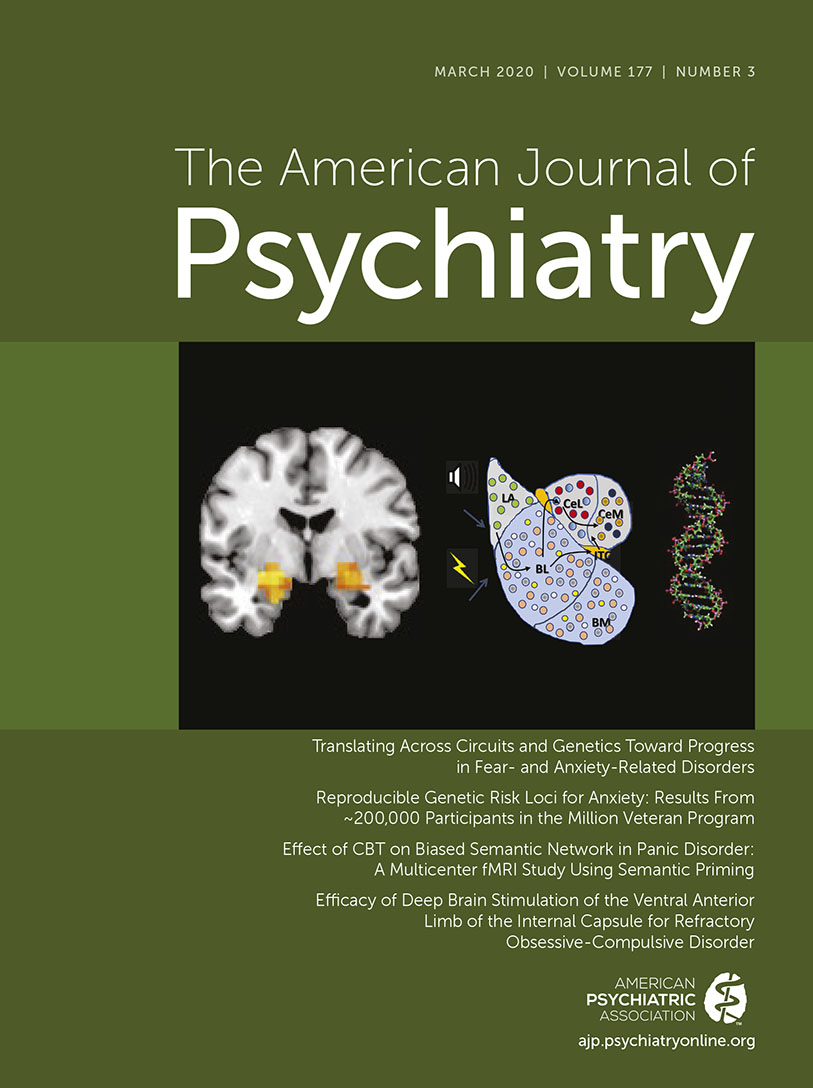Correction to Maron-Katz et al.
When the article “Individual Patterns of Abnormality in Resting-State Functional Connectivity Reveal Two Data-Driven PTSD Subgroups,” by Adi Maron-Katz, Ph.D., et al. (doi: 10.1176/appi.ajp.2019.19010060) was published online on December 16, 2019, there was a statement attributed to incorrect citations. In the first paragraph of the Results section, the previous comparisons of healthy and PTSD groups that led to the kind of network features that were expected should have referred to the following studies:
Daniels JK, McFarlane AC, Bluhm RL, et al.: Switching between executive and default mode networks in posttraumatic stress disorder: alterations in functional connectivity. J Psychiatry Neurosci 2010; 35:258–266
Zhang Y, Liu F, Chen H, et al.: Intranetwork and internetwork functional connectivity alterations in post-traumatic stress disorder. J Aff ect Disord 2015; 187:114–121
Koch SBJ, van Zuiden M, Nawijn L, et al.: Aberrant resting-state brain activity in posttraumatic stress disorder: a meta-analysis and systematic review. Depress Anxiety 2016; 33:592–605
This correction was made for the article’s appearance in the March 2020 issue and the online edition of the issue.



